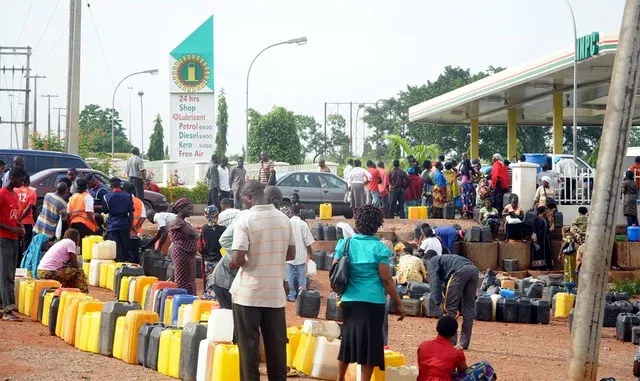Fuel Frenzy: Nigeria's Rollercoaster Ride Through Economic History
Nigeria Which Way? Here Is Price Of Fuel In Nigeria From 1972 To 2024 That Might Make You Cry
In 2024, with fuel prices soaring between N700 to N800 per liter, the burden falls on a combination of factors within Nigeria's economic landscape.
The complexity of Nigeria's fuel pricing history underscores a tangled web of political decisions, economic challenges, and global market dynamics.
Decades of successive administrations have left their mark, shaping the trajectory of fuel prices. From the early 1970s to 2012, Nigeria experienced a series of price fluctuations, each administration introducing its own set of adjustments and policies.
However, in the current context of exorbitant fuel prices, accountability lies not only with past administrations but also with present-day governance, economic policies, global market trends, and infrastructural challenges.
Corruption, inefficiencies in the oil sector, inadequate investment in alternative energy sources, and dependence on volatile global oil markets contribute to the crisis.
Additionally, mismanagement of resources, lack of diversification in the economy, and poor infrastructure exacerbate the situation.
To address the pressing issue of high inflation and exorbitant fuel prices, Nigeria needs comprehensive reforms, transparent governance, investment in sustainable energy solutions, and strategic economic planning.
Ultimately, the responsibility to mitigate this economic challenge rests on both the government and the citizens, who must work together towards a more stable and sustainable energy future for Nigeria.
Watch the video short below
